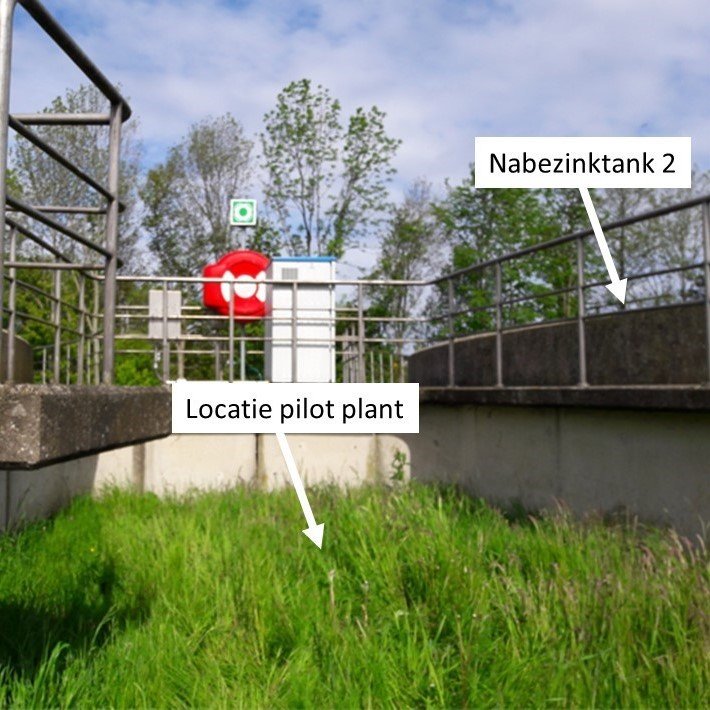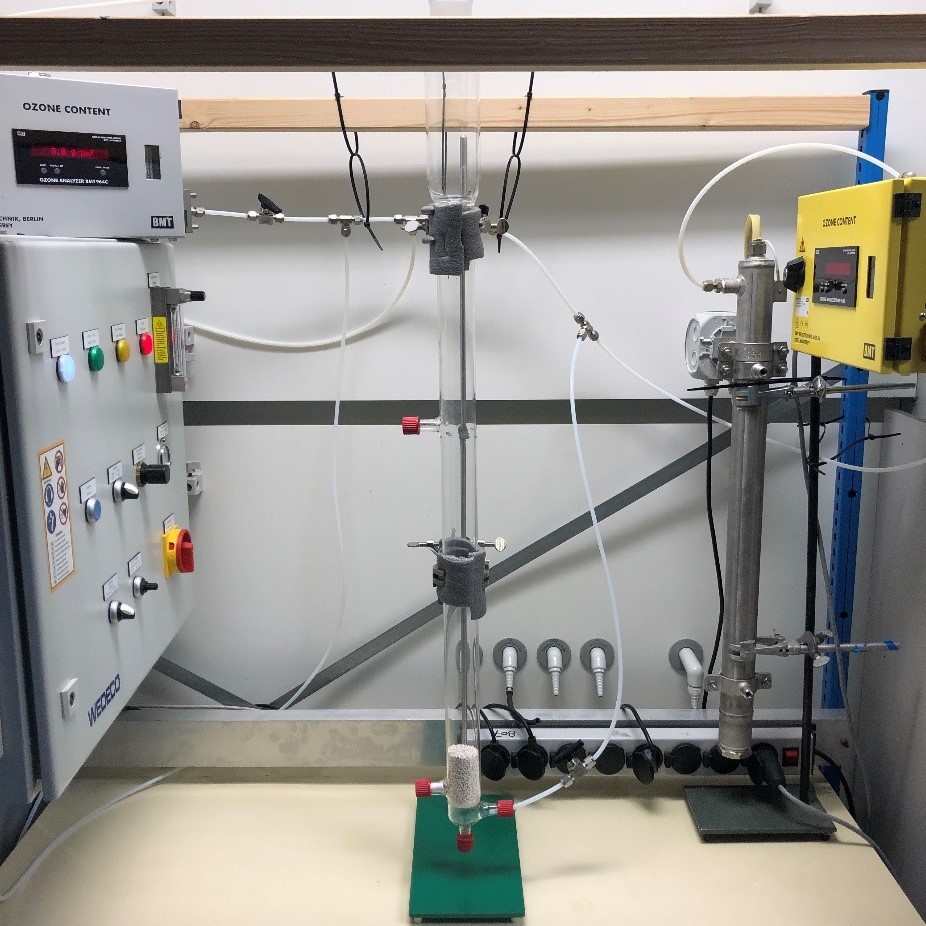AdOx – from laboratory research to pilot plant research
After almost four years of lab research, the AdOx process will be tested on pilot plant scale. AdOx is an innovative technology for removal of organic micropollutants (OMPs), such as pharmaceuticals, from domestic wastewater effluent. It combines adsorption with oxidation: zeolite granules remove OMPs from treated wastewater effluent by adsorption in a fixed bed filter, and the zeolite filter is regenerated with ozone gas after the zeolite granules are exhausted. The process is very selective for OMPs, cost-effective and extremely sustainable: the CO2-footprint is low, no bromate and oxidation by-products are released to the receiving surface water, and the ozone use is low. It is a very competitive technology compared to GAC filtration and direct ozonation of wastewater effluent.
In laboratory research, performed in the Waterlab in Delft, Nan Jiang, Nessia Fausta, Max Fu and Yasmina Doekhi-Bennani delivered the proof of concept of this technology. Based on this lab research, sponsored by KWR, Stowa and NWO, Nessia Fausta designed a pilot plant to deliver the proof of practice. Stowa, the Ministry of Infrastructure & Water Management, Waterschap De Dommel, Waternet, Hoogheemraadschap Rijnland and Hoogheemraad Delfland will finance this pilot plant research in the framework of the IMPV program (Innovatieprograma Micoverontreinigingen uit RWZI-Afvalwater).
The pilot plant, with a capacity of 0.5 – 1 m3/h, will be located at the wastewater treatment plant Leiden-Noord of Hoogheemraadschap Rijnland and will cover a period of about six month.
The project is a nice example of successful research from almost scratch to pilot plant scale. If successful, the next step may be a demonstration plant in the framework of the Groeifonds Watertechnologie.
Jan Peter van der Hoek, Luuk Rietveld and Bas Heijman

